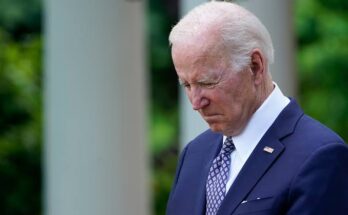Challenge facing the continent was the countries that “still have seven to eight children per woman”. The condemnation online was swift and relentless. The US political scientist Laura Seay summarised the problem many had with Macron’s words in a series of tweets: “It is RICH for a French president to criticise Africa this way,” she said. “France’s colonial theory was called the ‘mission civilisatrice’, which purported to bring all the benefits of Frenchness to the continent. Part of the ‘mission’ was the institutionalisation of Catholicism as the official religion of French colonial territories in Africa.” It seems that despite his youth and vitality, the new president is sticking to a very old line when it comes to France’s position on Africa.
Take Nicolas Sarkozy, who on a visit to Dakar, in Senegal, in 2007 said that “the tragedy of Africa is that the African has not fully entered into history … They have never really launched themselves into the future. The African peasant only knew the eternal renewal of time, marked by the endless repetition of the same gestures and the same words.” Delivered with the poetry you would expect from a Frenchman, erroneous and haughty as hell – but also plain old racist.
I would say that, in large part, Africans haven’t entered into history because Europeans keep writing them out of it. But that’s for another day. Macron’s statements make the blood boil not because they are novel but because they make no mention of the root causes of the challenges of which the president speaks. Gone is the lucid, welcome admission that France’s role in its former colonies was anything but laudable. He now says nothing After making comments on Africa in Hamburg during the last G7 summit, the French President’s popularity in Africa seems to have dipped, AWAAL GATA dissects why. When the French President, Emmanuel Macron, made headlines as the favourite to win his country’s presidential election runrun against Marine Le Pen earlier this year, many African, especially the ones on the cyberspace, roared in jubilation as if it were in there countries the election was going to take place and it was there favourite candidate that was involved. When the result of the rerun was announced and Macron indeed won, it, to them, felt as a sort of revolution happening in Africa, unlike the the cold that eveloped the country after President Donald Trump of the United States of America (USA) was cruising to victory last year. Two reasons were ultimately behind his popularity.
The first reason was because of his age. Gerontocracy has been rife in leadrship in Africa. All 10 of the world’s nations with the youngest populations are in Africa, according to United Nations statistics, giving the continent a median age of just under 20 years—or, roughly half the estimated median age of the United States, (37.9 years according to CIA estimates). Yet, by latest count, at least eight African leaders have served in office for two decades, with an average age of 72. Like never before, the continent’s youth are fed up with being on the fringes of the leadership positions. So seeing, Macron becoming the President of France, was of the most powerful countries in the world, was an inspiration to them.
The second reason for Macron’s popularity among the Africans was because he ‘defied the French political establishments’ to win. With President Muhammadu Buhari and Nana AkufoAddo of Ghana defeating the incumbents in 2015 and 2016 to become Nigerian and Ghanaian presidents respectively, never has the African youths, who have the main population of the people outside the political establishments, inspired to vie for leadrship position, hence the coming of Macron was an inspiration. But Macron his no longer popular among Africans, only months into his presidency. When asked in a press conference at the G20 summit in Hamburg why there was no Marshall plan for Africa, heexplained that Africa had “civilisational” problems.
He added that part of the Diplomatique iplomatique of the fact that France’s future is indelibly tied to that of its former colonies, and that the relation between the two remains largely neocolonial: Francophone Africa still trades heavily with France, and French companies – particularly in the extractive industries – have a strong presence on the continent.
More controversially, France’s relationship with its former colonies – known asFrançafrique – is perhaps best captured by the use of the CFA franc currency, which off ers little benefi t to the Francophone nations. As the Cameroonian journalist Julie Owono has written: “CFA zone countries have to deposit 50% of their currency reserves into a so-called operations account managed by the French treasury.” Militarily, France also continues to embroil itself in issues of state in its former colonies, but is often silent on human and civil rights abuses. Again, look at Cameroon, where the strongman Paul Biya imprisons opponentswith no charge, meets peaceful protest with violence, and turns off the internet in order to silence his people – all of which has elicited not a peep from the French regime. Th e test of Macron’s presidency is his foreign policy, particularly on Africa. At the moment he’s doing a fi ne job of proving he is cut from the same cloth as every leader who has come before him: adopting a paternalistic tone and happy to moralise, while profi ting from the carnage Francehelped create – to which, at best, he turns a blind eye.



